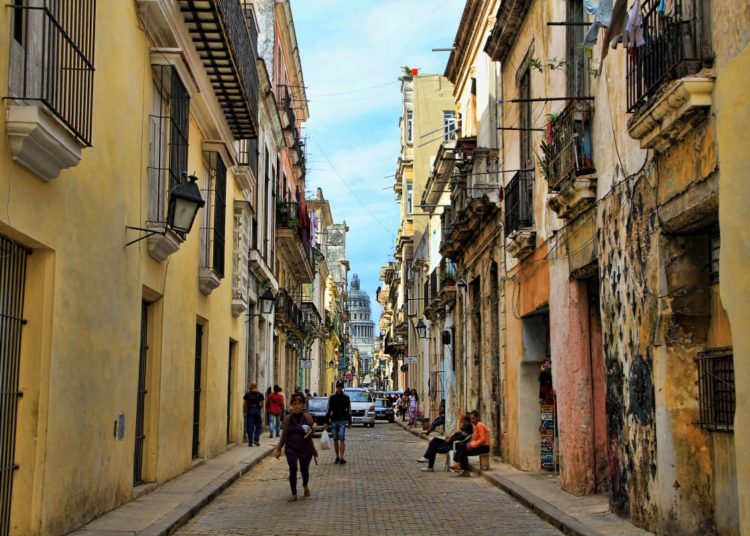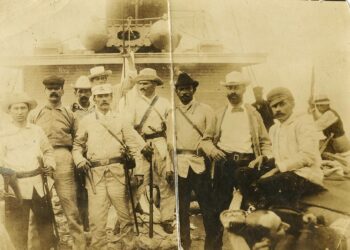One can live being sick, but one cannot live without justice, my dad, who loved to exaggerate so that the importance of the law could be better noticed, used to say.
He repeated to me many times that the only reason why young people in the prime of life are capable of risking their lives, their freedom, their comforts, is to have justice, that one that can only be understood in its widest sense when we don’t have it or it is wounded.
I don’t understand development without justice, just like I don’t understand it without democracy. The current indicators to measure societies and advanced institutions must consider justice as a parameter, because it doesn’t matter how much bread and oil you have in the pantry and in the well if you don’t have it.
In book I of Emperor Justinian’s Digest one can read that justice is the constant will to give each person what belongs to them. The life we are leading is still the pursuit of a little of that balance, so that at least each one has a part of what they should have.
It is strange how as human civilization we have accepted to do without justice and democracy. No one weighs today living without electricity after having known it, or living without Internet and their Facebook and their YouTube, after having navigated through its swirling but fascinating waters.
But we accept as fate living in unfair societies, without a state of law, without democracy, as if these questions were not the product of our millenary struggles, of our study, of the revolutions that human beings have carried out and suffered, of the state of science, of human thinking, of the political ideas that have accompanied the advance of societies until our days.
Without justice life is miserable, nauseating. What makes us human beings is not only what we east, say, write and wear, but rather what we fight for. Justice is a human value that affects all others, it is the moral world’s sun, without it there is no possible happiness because the latter would depend on others, and we would always be at the expense of losing it without justification.
Afterwards, justice allows us to think of equity. The Romans used to say that an extreme interpretation of regulations could become unfair because it would be based on a cold reading of the law, which is never as intense and alive as human reality and as events experienced. That’s why equity was invented, the organizing tool, the justice of the concrete case, the wisdom of the magistrate who reads in the law beyond its reading to find justice where it attempts to hide.
For thousands of years we have been trusting – it is also true that it has been by force – judges, first men, later also women, who because of their purity and knowledge have in their judgments the decision on who justice must touch with its hands.
We live in societies where the State, law, justice, have accompanied us throughout our lives. We don’t know how to live without the State, neither do we imagine life without it, we know what it is to live without law, but we have an idea of what it is to live with its repeated absence and its confused presence.
But justice is more, it is not enough to have a more or less built law, in addition it is necessary to have the constant will to make it land on human situations, on legal relations, on events and our life actions.
Justice must be protected, it first has to appear as reference in the Constitution, it must be shining and defended in the Law, through the media, regulations, institutions and processes that ensure and guarantee it. It also must be part of our political practices so that immorality and corruption are eradicated, so that transparency be the measure of the administration’s performance, so that no one speaks louder than justice, which we don’t want blind but rather with eyes everywhere.
If we learn to live without justice, if we accept that the powerful manage the law, politics and the economy, there will be no hope for human civilization anywhere. We can tighten our belt and eat less and worse for decades. There are things that make us humble, frugal and simple, but none of them is living without justice or under the government of forgetfulness.
Justice makes us as human as reason and love; the paintings of freedom, democracy and justice should hang with the same admiration side by side as human civilization’s artworks.
In short, Cuba must discuss its political and legal fate. Nowhere do I see the test of the discussion that will come, nor do I see the theater of the game of tensions that must entail proposing a new Constitution for Cuba. Justice will be at play, its mechanisms of feasibility and possibility will be at play, its own definition and framework will be in question.
There are moments that define a people forever. I am terrified that our people won’t notice now the sacred and permanent struggle for justice that has made us respectable and dignified humans.
The Constitution is no game. In any case it is a game to the death. Or better, it is a game for life.










